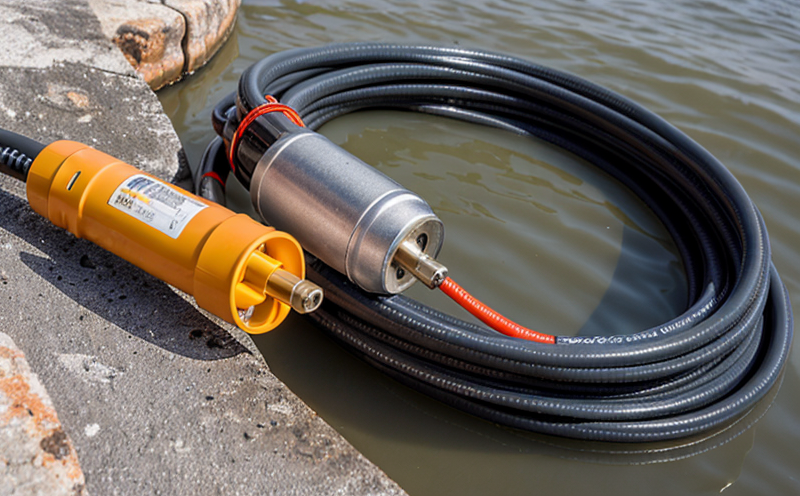Corrosion Resistance of Marine Cable Insulation
The Importance of Corrosion Resistance in Marine Cable Insulation A Crucial Laboratory Service for Businesses
In the marine industry, cables and wires are the backbone of communication, navigation, and power supply systems on ships and offshore platforms. However, exposure to seawater and saltwater environments poses a significant threat to these critical components. Corrosion resistance of marine cable insulation is an essential laboratory service that can make all the difference between a vessels operational safety and catastrophic failure.
At Eurolab, our team of experts understands the significance of corrosion-resistant materials in marine applications. We provide a comprehensive laboratory service to assess the corrosion resistance of marine cable insulation, ensuring the reliability and longevity of your critical systems. In this article, well delve into the importance of corrosion resistance in marine cable insulation, its benefits, and how Eurolabs laboratory service can safeguard your business.
Advantages of Corrosion Resistance of Marine Cable Insulation
The advantages of using corrosion-resistant materials in marine cable insulation are multifaceted
Extended System Lifespan Corrosion-resistant materials can significantly extend the lifespan of your marine systems, reducing maintenance costs and downtime.
Improved Safety By preventing catastrophic failures, you ensure the safety of crew members and passengers on board vessels.
Reduced Environmental Impact Corrosion-resistant materials help prevent leaks and spills, minimizing the environmental impact of your operations.
Increased Reliability Corrosion-resistant materials provide a reliable connection between electrical components, reducing the risk of communication breakdowns and navigation errors.
Here are some key benefits of using corrosion-resistant materials in marine cable insulation
Durable and Long-Lasting Our laboratory service evaluates the materials resistance to seawater and saltwater environments.
Chemical Resistant We assess the materials ability to withstand exposure to chemicals commonly found in marine environments.
Mechanical Strength Our testing ensures the material maintains its mechanical strength even after prolonged exposure to harsh conditions.
Comprehensive QA Section
Here are some frequently asked questions about Corrosion Resistance of Marine Cable Insulation
Q What is corrosion resistance, and why is it essential for marine cable insulation?
A Corrosion resistance refers to a materials ability to withstand chemical reactions that can cause damage or deterioration. In the marine industry, corrosion-resistant materials are crucial due to exposure to seawater and saltwater environments.
Q How does Eurolabs laboratory service assess the corrosion resistance of marine cable insulation?
A Our team of experts uses advanced testing methods, including salt spray tests and immersion tests, to evaluate the materials resistance to corrosion.
Q What types of materials are commonly used for marine cable insulation?
A Common materials include PVC, polyurethane, and polyethylene. However, our laboratory service can assess a wide range of materials.
Q How can I ensure my marine system is protected from corrosion?
A By choosing materials with excellent corrosion resistance and regularly maintaining your systems, you can minimize the risk of corrosion-related issues.
Conclusion
Corrosion-resistant materials in marine cable insulation are no longer a luxury but a necessity. At Eurolab, our team is dedicated to providing comprehensive laboratory services that ensure the reliability and longevity of your critical systems. By choosing our Corrosion Resistance of Marine Cable Insulation service, you can safeguard your business from the risks associated with corrosion-related failures.
Dont wait until its too late take the first step towards protecting your marine systems today. Contact us to learn more about our laboratory services and how we can help you maintain operational safety and efficiency in harsh environments.




